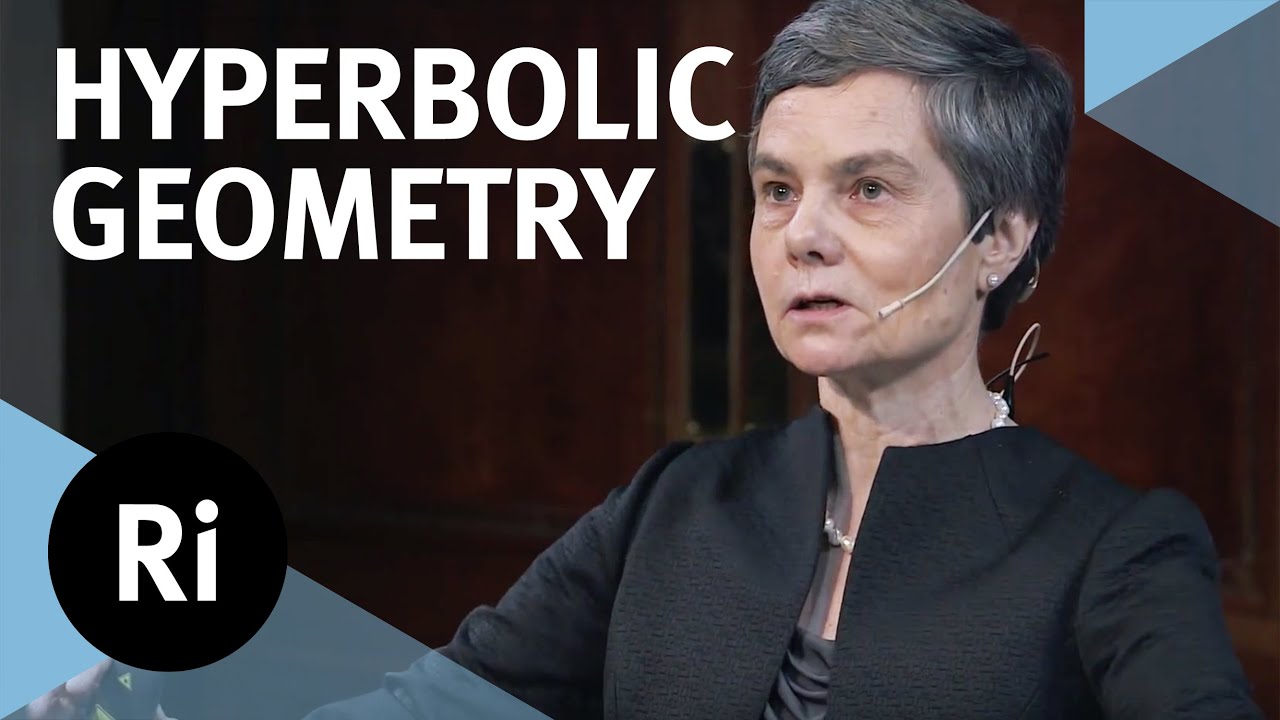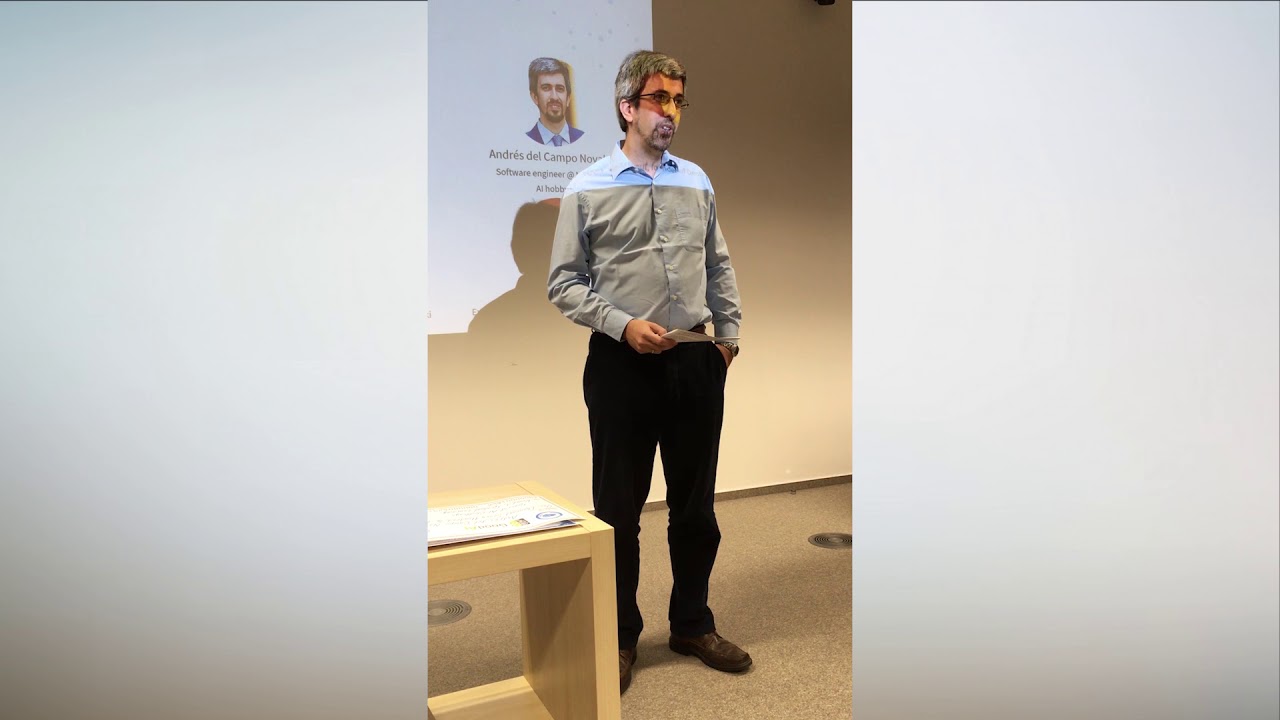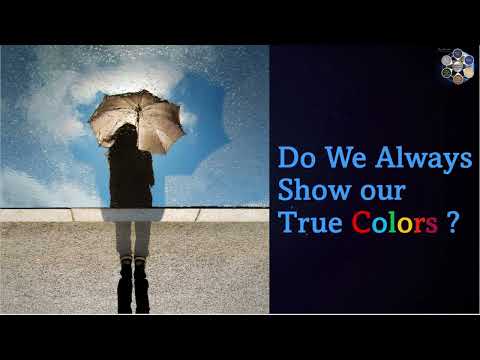The Royal Institution
If you imagine a three dimensional maze from which there is no escape, how can you map it? Is there a way to describe what all possible mazes look like, and how do mathematicians set about investigating them?
Subscribe for regular science videos: http://bit.ly/RiSubscRibe
Caroline Series describes how hyperbolic geometry is playing a crucial role in answering such questions, illustrating her talk with pictures that have inspired some striking examples of digital art.
Caroline Series is Professor of Mathematics at the Warwick Mathematics Institute, University of Warwick
Her academic interests are in hyperbolic geometry, Kleinian groups and dynamical systems. Her research has been on the theory of dynamical systems and geometric patterns in three-dimensional hyperbolic spaces.
Her work has been recognised through awards and prizes, most recently with the Senior Anne Bennett Prize from the London Mathematical Society. She is also a founding member of the European Women in Mathematics (EWM), which aims to support and encourage female mathematicians across Europe.
This was filmed at a Friday Evening Discourse at the Royal Institution on 28 November 2014.
Subscribe for regular science videos: http://bit.ly/RiSubscRibe
The Ri is on Twitter: http://twitter.com/ri_science
and Facebook: http://www.facebook.com/royalinstitution
and Tumblr: http://ri-science.tumblr.com/
Our editorial policy: http://www.rigb.org/home/editorial-policy
Subscribe for the latest science videos: http://bit.ly/RiNewsletter
Source



Interesting subject but terrible use of Keynote (Power Point like presentation software). Text was too small and crowded in the corner, too many things on each slide, wrote like it was a textbook rather than showing the point to be made and used laser pointer rather than highlighting and graphic techniques. She talks to the slides rather than the audience and doesn't realize that she can have speaker's notes to guide her.
I have always loved mathematics and geometry but this talk will make almost everyone hate these wonderful subjects. She really needs to develop the skills of public presentation before she ever speaks again. I pity any student she has ever 'taught'.
Great talk. BTW she reminds me of a female version of Roger Penrose.
I'm really enjoying this lecture, but it is rather difficult to get past the exceptionally poor presentation. Sadly, while the content IS fascinating, in this medium presentation and communication accessible to a wide public audience is far more important as not everyone who enjoys what the RI offer will have the background to feel comfortable with this content. It's more likely to turn some of these people away from this type of material.
What a bunch of hyperbolic hyperbole!!
I know some of this stuff and can't comprehend anything she's talking about.
Yeah, I'm out after 7 minutes. And I'm that person who watched hours of Stanford's recorded biology lessons!! I'm walking away knowing next to nothing from those seven minutes… I've had those kinds of teachers in the past… every. minute. a. torture… I'm sorry, but this how you teach robots, not how you share knowledge with humans. 🙇
i'm not british, could someone tell me what a cro-chay is?
I don't get why people don't understand this stuff. She's not saying anything all that complicated, just putting shapes together.
Not sure who the audience this is for. I thought this was a layman's lecture but she pulls out all these terminology without explaining it. As a science major I know what matrices are as well as non-euclidean geometry, and even to an extent what a lorentz transformation is but there are other terms I wish she had explained more in depth. It is odd to me that she started with what a torus is and 30 minutes in she's talking about all these other stuff without elaboration.
She just made me go back to chrochet kniting, I´m looking at it from a very diferent angle now XD
Its funny that people like to learn. But not from everyone only from those that "have funny presentations". You need to go past the presentation skills. Remember there is someone really smart telling you something. If you find it boring then you are not really seeing the potential of the information that you are receiving or not understanding the subject. With topology specially I fit on the 1st. I think topology subjects are really weird and is a relative new area in mathematics so there is not much application to compare or to introduce the subject. It sucks I know, but nonetheless its what we have for now in this area.
Uuuuuummmmmmmmmmmm…..
Useless
very easy to understand, thank you.
Do viruses have hyperbolic structure?
Excellent lecture
One of the rather satisfying uses of 3-D printers these days, is to be able to print off 3-D structures like these. Nice.
"If you imagine a three dimensional maze from which there is no escape, how can you map it?" Look at my work.
π = 3D
Thank You madam.
Jesuschrist you leave a nanosecond for each slide. Leave at least 15 seconds for each.
The tone of her voice and the resonance of the hall makes for a very difficult to understand talk. 🙁
i am redonkeylusly confuzzled right now
Brilliant lecture! 👌 For those who're interested, this woman is also one of the co-authors of the great book, Indra's Pearls.
It is worth remembering that lines and surfaces are intellectual constructs, not things in the world of our lives' experience.
Nothing is flat in reality. A thing that has no extension isn't there. Nor anywhere else except in our minds. Some of the time. And "three" "dimensions," the bulk world we live in, has an infinite number of directions notionally and a very great number in fact. The two directions front and back are no more important than off at an angle to the left. Down may very well be toward the centre of the Earth, but if so this would mean up is different for everybody.
The excellent E.O. Wilson, in his very good book "Consilience" suggests that any advance from the Standard Model is going to come from epistemological, not experimental, change. It seems to me that clearing up the very sloppy misuses of the word "dimension" is a prerequisite for this project.
This puts me back to school. My 9/10th grade math teacher was kind of like her. I barely got a passing grade.
"Point (Carry)" in the subtitles translation in a strange english is, of course, "Poincarré, Henri, mathématicien et physicien quantique français" (see Wikipedia). I understood her english without a problem so why make a problématic translation by a non scientist?
"Moscow theorem" might be Mosta theorem…
It would be a bit easier to follow if she stopped walking backwards and forwards all the time!